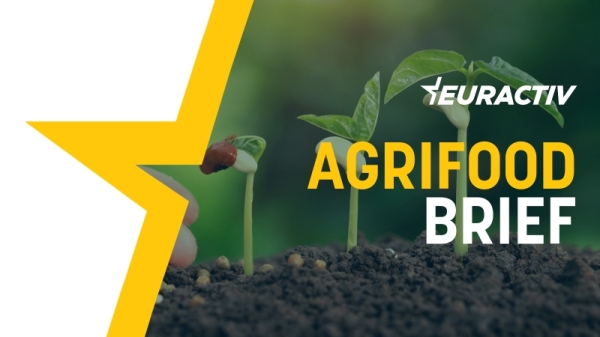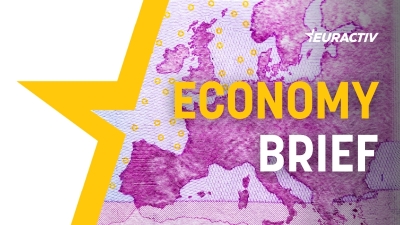Melons, tomatoes and geopolitics

Melons and tomatoes from the Western Sahara, the main crops in the contested territory, should be labelled as such and not as originating from Morocco, according to the opinion of Tamara Ćapeta, an advocate general at the EU’s top court, issued on Thursday (21 March).
In 2020, the French farmers’ union Confederation Paysanne initiated the case before the French Council of State, the country’s highest administrative court, which in 2022 referred it to the EU Court of Justice to scrutinise the legality of an import ban on mislabelled products — an option that Ćapeta ruled out.
According to the advocate’s opinion, EU custom rules require that “Western Sahara” is indicated as the country of origin of melons and tomatoes grown and harvested in the region, as any other label would be “misleading EU consumers in their purchasing decisions.”
According to EU case-law, the territory of Western Sahara, annexed by Morocco in 1975, is a “distinct and separate territory” from the kingdom.
Though the final verdict remains pending, Ćapeta’s stance is expected to have a major influence on the Court’s decision.
The link between food and geopolitics – often materialised through trade flows – is undeniable, and this case is just one example of political motivations hidden behind a label.
In 2019, the EU’s top Court ruled that products from Israeli settlements in occupied Palestinian territories cannot be labelled “Made in Israel”, in line with explicit labelling rules issued by the European Commission in 2015 for such products.
Hugh Lovatt, a senior policy fellow at the European Council on Foreign Relations (ECFR), told Euractiv that enforcement across EU countries has remained “patchy,” with Belgium, Netherlands and France displaying more diligence compared to others like Hungary, which has at times actively opposed such measures.
Regarding Western Saharan products, the Commission has repeatedly shied away from clarifying labelling rules, aware of the daunting implications that this could have on its relationship with Morocco, the EU’s closest ally in North Africa,
In 2019, MEP Heidi Hautala (Greens/EFA) wrote to the Commission to inquire about the labelling of products imported from the Western Sahara, given that EU law considers Morocco to have no sovereignty over the territory.
The Commission’s response, given by EU farming chief Janusz Wojciechowski in 2020, clearly stated that all imported products need to comply with country of origin requirements, which in such cases “must be ‘Western Sahara.’”
But the text, a copy of which was kept by MEP Hautala, was mysteriously removed later and replaced with a vague answer that omits any reference to the disputed territory.
The final reply only states that Morocco is responsible for ensuring that fruits and vegetables comply with EU marketing standards.
The European Commission has declined to comment until the Court issues a final ruling.
Nibbles of the week
In two other opinions issued on Thursday, Ćapeta concluded that a fisheries agreement between the EU and Morocco should be cancelled as it does not consider the disputed territory of Western Sahara and its waters as distinct from the North African kingdom.
EU agrees to renew Ukraine trade benefits, but deal still in the limbo. The European Parliament and the EU Council on Wednesday reached a provisional agreement to renew trade liberalisation measures with Ukraine until June 2025, with an ‘emergency brake’ in case of excessive imports of key foods. But, while the Parliament’s trade committee approved it, EU Ambassadors postponed their final decision.
EU agriculture MEPs vote to exempt ‘old varieties’ from seed marketing rules. The European Parliament’s Agriculture Committee (AGRI) voted on Tuesday (19 March) to loosen rules on marketing seeds and plant reproductive material for conservation purposes and informal exchanges between farmers.
On the same day, the AGRI committee called for more support for on-farm slaughter of animals. MEPs backed the Commission’s proposal to give farmers greater flexibility to slaughter animals on the farm and thus reduce the need for animal transport, but called for more assistance.
Campaigners take legal action against the European Commission over animal cages. The EU executive will face the European Court of Justice of the European Union (CJEU) after a citizen-led initiative, ‘End the Cage Age’, filed a case over its alleged failure to deliver on a promise to work towards phasing out cages in farming.
EU fisheries sector increasingly dependent on imports, study warns. The EU fisheries sector is suffering from a lack of competitiveness and unfair competition from third countries, according to a study discussed by MEPs in the European Parliament’s Fisheries Committee (PECH) on Wednesday.
Half of Gaza population at risk of ‘imminent’ famine, new report says. According to a report published on Monday by the Integrated Food Security Phase Classification (IPC) – a tool used by several governments and international agencies -, half of the population of the Gaza Strip (1.1 million people) is expected to face “catastrophic conditions” between mid-March and mid-July – the most severe level on the organisation’ food insecurity scale.
Read more with Euractiv




